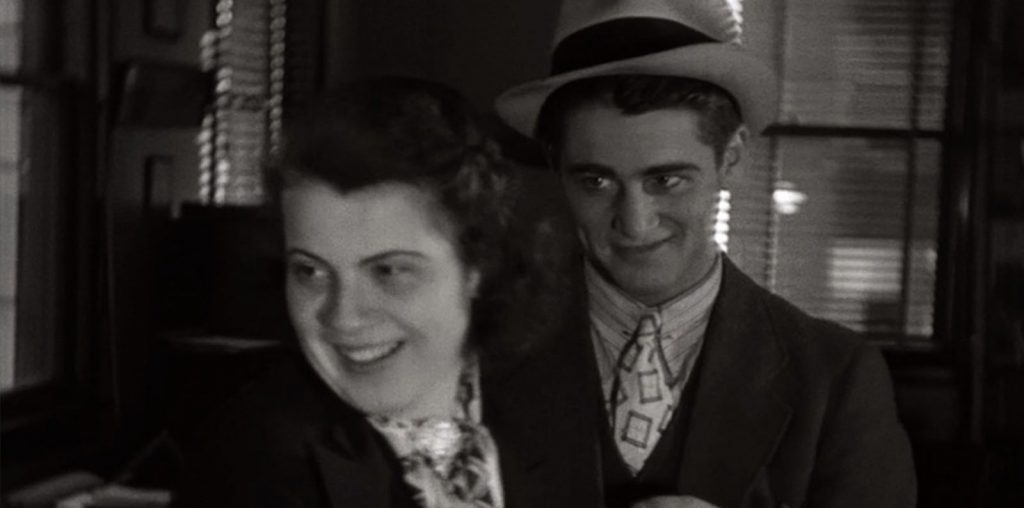
A story’s narrative can change before the consumer’s very eyes. The ebbs and flows a plot may take can be about one thing or a specific character, then transforms to be a wholly different experience than the first part sets up. When done poorly the audience feels ripped off and annoyed. Hancock, for example, is about an alcoholic superhero that causes tons of extraneous damage, so he winds up in jail. After that stint, the titular hero hires a PR team to help turn his image around.
Then it gets bogged down in its convoluted lore involving another superhero, Greek gods, proximity to each other, and utter stupidity. This change destroys an otherwise fun, different approach to the superhero genre and it adds nothing to the characters, the original story beats and confuses everyone who was not paying full attention.
Other times, this transformation is not only an engaging twist but also switches the way the audience views everything leading up to that moment. Carousel has one of its main characters, ostensibly the male lead, get stabbed to death in act two. It is a romantic love triangle story before that tragedy. Then it morphs into a spiritual redemption tale. Jarring though it might have been, as written it works to up the stakes and gives Julie, the female lead, a more active, less passive voice.
1/1 is a drama that starts with Lissa (Lindsey Shaw) entering a doctor’s office. She might be pregnant, and the first test is a bit inconclusive. This means she’ll need to get blood drawn for concrete answers. She sets out to right things with her mom, Joan (Dendrie Taylor), as the two have been estranged ever since Lissa’s father, Robert (Judd Nelson), took his life. As Lissa sorts out what to do if she is indeed with child, truths about her dad emerge, forcing her to reexamine the past, herself, and what the future may hold.

“…sorts out what to do if she is indeed with child, truths about her dad emerge, forcing her to reexamine the past…”
Writer-director Jeremy Phillips chooses to tell this story in a non-linear fashion. Shaw gives voice-over about her thoughts on life, intercut with interstitials such as WHAT, WHO, and WHY. These sections tell the audience whether characters or plot or both will be the main focus of the scene. They also use photographs, time-lapse video, journal entries, and the like to fill in backstory not explicitly spelled out for the audience.
While it may sound jumbled, with the audience only being given a fraction of information at a time, it works like a charm. By the end of the doctor’s visit, the audience has an excellent understanding of Lissa’s views on the futility of life, her relationship with her boyfriend, and why she is so afraid of being pregnant. In part, it stems from the existing population, her parents, and what she wants from life. For such a young adult, she is quite sure of herself, and that confidence shines through the character thanks to effective directing, excellent writing, and a sublime performance from Shaw.
During a heated exchange between her mother and herself, Lissa tells Joan that she hates her ever so much. She explicitly blames her mom for dad’s suicide and has not forgiven her. Joan tells Lissa that she knows she has not been a good parent, admitting that it was Robert, not her, that wanted a child. However, she explains that she does love Lissa, and only did certain things that seem distant to hide the truth of her father’s mental illness. Shaw is intense and raw as she breaks down crying, demanding that Joan tell her the facts from the day before the suicide. Taylor is just as superlative, as for the first the whole movie, the audience does believe that this ice queen sincerely does have her child’s best interest at heart.
It is a wildly impressive bout of acting from both actors. Matching the leads in every way is Judd Nelson, in what may be the most accomplished performance from his entire career. His screentime amounts to maybe fifteen minutes, his lines less than that. However, the way he holds himself, the far-off look in his eyes, and his chemistry with his costars are wondrous. A dinner scene between then three family members is quiet, as Lissa asks her father to pass some of the food. He stares off into space, just slowly removing green beans from his plate, piling them on the side of it. It is unsettling and mesmerizing.

“…the audience only being given a fraction of information at a time, it works like a charm…”
Tom Banks, as director of photography, creates a luminous looking film. The varied style employed all come in with a uniform look, so each photo collage montage is a bit dusty, whereas the time lapse is grainy than the rest of the film. This keeps every scene, no matter what is happening, visually rich and detailed, certain to hold the viewer captive.
All of this remarkable talent hangs on a story that is takes several interesting turns. Lissa’s goal at the start is to discover if she is pregnant and deal with the fallout from both her mother and boyfriend. But in trying to repair her damaged relationships, the movie becomes about how one can deal with mental illness present in those they loved. Also, how does a person reconcile the sweet front of a person they know versus the dark stability lying beneath? Lissa’s answers are found within, as she must accept herself, her situation, and ultimately, her parents. To find out if Lissa matures enough to do so, or if she spurns the world she feels is out to get her, one must watch 1/1 and pay close attention..
1/1 is not a movie you passively watch. It is a full-throttled experience that encompasses a variety of styles. The directing is brilliant, and the writing is smart, allowing each character to be a well-rounded person with strengths and weaknesses unique to them. It is the acting that elevates the material from an intriguing experiment to arresting, must watch masterpiece. The movie is flawless in every way.

1/1 (2018) Directed and written by Jeremy Phillips. Starring Lindsey Shaw, Judd Nelson, Dendrie Taylor, Leland Alexander Wheeler, James P. Engel, Veronica Avila.
10 Gummi Bears (out of 10)

